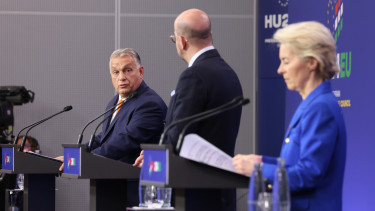COVID-19: All EU Member States will have access to vaccines at the same time

As Europe learns to live with the pandemic, the development and swift global deployment of safe and effective vaccines against COVID-19 remains an essential element in the eventual solution to the public health crisis, the EU executive said in a statement.
In this context, the Commission is working to ensure that there will be access to safe vaccines across Europe, and
encourages a coordinated approach of vaccination strategies for deployment of the vaccines.
Today, ahead of the discussion of EU Leaders, the Commission is presenting the key elements to be taken into consideration by Member States for their COVID-19 vaccination strategies in order to prepare the European Union and its citizens for when a safe and effective vaccine is available, as well as priority groups to consider for vaccination first.
"With our Vaccination Strategy, we are helping EU countries prepare their vaccination campaigns: who should be vaccinated first, how to have a fair distribution and how to protect the most vulnerable. If we want our vaccination to be successful, we need to prepare now," said Commission President Ursula von der Leyen.
After the summit has started she said tat “there are crucial topics on the agenda” today and that when it comes to the coronavirus crisis,
the situation is getting more and more worrisome,
adding that “strong action is needed” and that “the Commission has been working hard to support the member states in the fight against the virus.”
The President stressed "it is also necessary that there will be an agreement on the time of quarantine or the necessity of testing.”
Speaking on vaccines, von der Leyen noted that the EC has concluded contracts with companies and has put forward a proposal for a vaccine strategy.
Time is running out – everyone's first priority should be to do what it takes to avoid the devastating consequences of generalised lockdowns
, said Stella Kyriakides, Commissioner for Health and Food Safety.
"And we must all prepare for the next steps. The vaccine will not be a silver bullet, but it will play a central role to save lives and contain the pandemic. [...] Vaccines will not save lives – vaccinations will," she added.
Any vaccine will need to be authorised by the European Medicine Agency according to regular safety and efficacy standards. Member States should now start preparing a common vaccination strategy for vaccine deployment.
Member States should, among others, ensure:
- capacity of vaccination services to deliver COVID-19 vaccines, including skilled workforce and medical and protective equipment;
- easy and affordable access to vaccines for target populations;
- deployment of vaccines with different characteristics and storage and transport needs, in particular in terms of cold chain, cooled transport and storage capacity;
- clear communication on the benefits, risks and importance of COVID-19 vaccines to build public trust.
All Member States will have access to COVID-19 vaccines at the same time on the basis of population size.
The overall number of vaccine doses will be limited during the initial stages of deployment and before production can be ramped up. The Communication therefore provides examples of unranked priority groups to be considered by countries once COVID-19 vaccines become available, including:
- healthcare and long-term care facility workers;
- persons over 60 years of age;
- persons whose state of health makes them particularly at risk;
- essential workers;
- persons who cannot socially distance;
- more disadvantaged socio-economic groups.
Whilst awaiting the arrival of approved COVID-19 vaccines, the EU must continue mitigating the transmission of the virus. This can be done through the protection of vulnerable groups and ensuring that citizens adhere to public health measures. Until then and most likely also throughout the initial vaccination rollout phases, non-pharmaceutical interventions, such as physical distancing, closure of public places and adapting the work environment, will continue to serve as the main public health tools to control and manage COVID-19 outbreaks.
Cover photo: Getty Images











